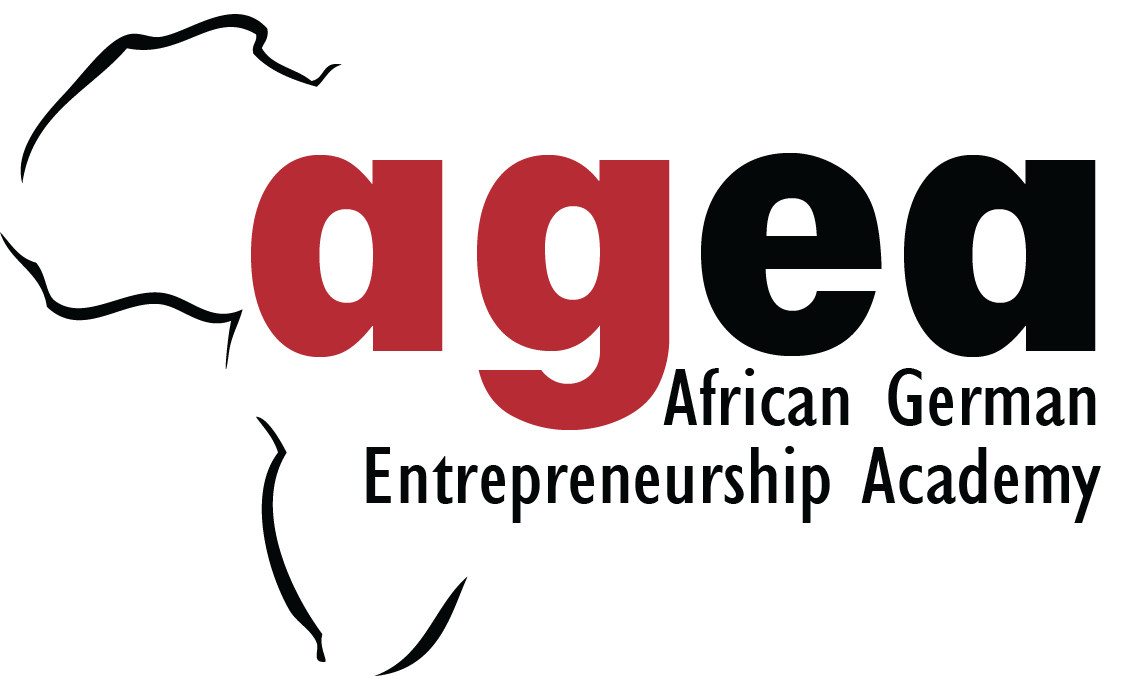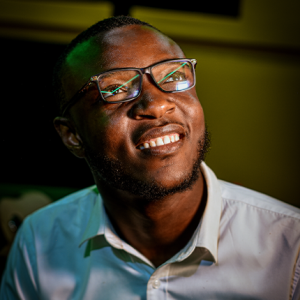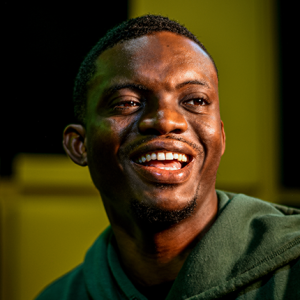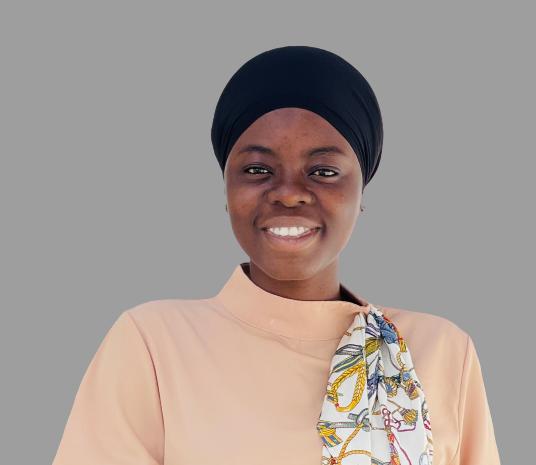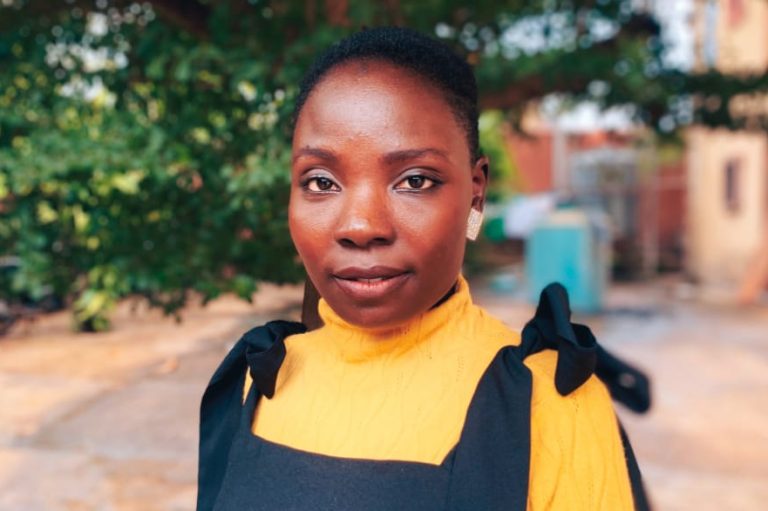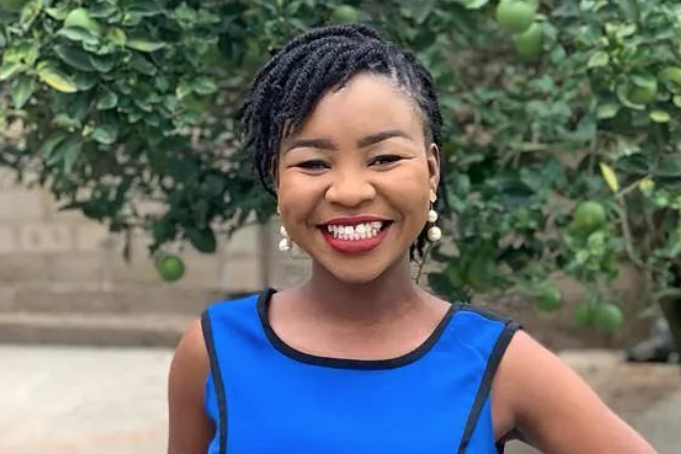Start-up Projects
2024
WEMA Black Soap (Kenya)
WEMA Black Herbal Soap is not just a soap, it’s a complete skincare regimen in one product. Developed by researchers at Mount Kenya University (Kenya) in collaboration with local herbalists, this unique soap incorporates six potent herbal extracts to create a natural, multi-functional skincare solution. It is designed to comprehensively address five major skin concerns—antibacterial, moisturizing, detoxification, antioxidant properties, and skin smoothening/reduced aging/exfoliation. With WEMA, you can address all your skin concerns with just one product.
WEMA Black Herbal Soap is not just about quality, it’s also about affordability. With a high Total Fatty Matter (TFM) content of at least 87%, surpassing the international standard of 76%, this soap ensures superior moisturizing and skin conditioning properties. Its formulation, which prioritizes non-toxic, natural ingredients, caters to the increasing demand for safe, eco-friendly skincare products. Priced affordably, WEMA Black Herbal Soap aims to deliver exceptional value, making premium skincare accessible to a broader audience. This product enhances personal care routines and supports sustainable and ethical practices by leveraging local herbal knowledge and resources. WEMA is poised to meet the needs of health-conscious consumers seeking effective, natural, and cost-effective skincare solutions.
WEMA Black Herbal Soap addresses the need for effective, natural, and affordable skincare solutions. Traditional soaps often contain harsh chemicals that can cause skin irritation and are unsuitable for treating specific skin conditions. Many consumers seek healthier alternatives that provide multiple skin benefits without harmful effects. The solution arose from a collaboration between Mount Kenya University researchers and local herbalists, resulting in WEMA Black Herbal Soap. This soap combines six herbal extracts to deliver a comprehensive 6-in-1 treatment addressing antibacterial needs, moisturizing, detoxification, antioxidant properties, skin smoothening, and exfoliation. Moreover, WEMA’s non-toxic, natural ingredients align with the growing consumer preference for herbal products, offering significant value for money and catering to a market demanding healthier skincare options.

Affiliate University: Mount Kenya University, Kenya
Team



Clean Energy4All (Benin)
CLEAN ENERGY4ALL is an innovative start-up aiming to revolutionize the grain milling industry in West Africa by introducing solar-powered, automatic, and silent mills. These mills reduce carbon dioxide emissions, lower noise pollution, improve working conditions for millers, increase their profitability, reduce the cost of milling per kilogram of grain, and provide high-quality flour to households. By offering a sustainable, economical, and safe solution, CLEAN ENERGY4ALL BENIN targets mill owners and millers across the West African region, thereby contributing to the economic and environmental development of the area.
CLEAN ENERGY4ALL is addressing significant challenges in the grain milling industry in West Africa by introducing solar-powered, automatic, and silent mills. Traditionally, grain milling in this region has been plagued by high carbon dioxide emissions, excessive noise pollution, and poor working conditions for millers, all of which negatively impact their profitability and the overall quality of life. Additionally, the high milling costs have been a burden for mill owners and consumers alike. CLEAN ENERGY4ALL’s innovative mills offer a sustainable solution by reducing emissions and noise, enhancing the work environment, and lowering the milling costs per kilogram of grain. This improves the profitability of millers and provides high-quality flour to households at a reduced cost. By targeting mill owners and operators, CLEAN ENERGY4ALL contributes to the economic growth and environmental sustainability of West Africa and fosters both regional development and a cleaner future.


Affiliate University: IRGIB Africa University, Benin; Clean Energy4All Benin
Team



Mechanised Kente Weaver (Ghana)
The Mechanised Kente Weaver centers on revolutionizing the production of traditional Ghanaian kente cloth through technology. By developing a small-scale, mechanized, portable, and energy-independent weaving loom, the start-up aims to enhance productivity compared to the traditional wooden loom method significantly. Currently, kente weaving is labour-intensive, taking between 14 to 40 days per fabric piece, which restricts production volume and increases costs. This new technology is also expected to make the weaving industry more sustainable and appealing, as it addresses the efficiency and environmental impact concerns associated with traditional methods. By automating the process, the start-up will streamline production and potentially make Kente cloth more accessible and affordable, benefiting both producers and consumers. Importantly, the start-up’s approach not only addresses the challenges of scale and affordability but also preserves the rich cultural heritage of kente weaving in Ghana, fostering a deep sense of respect and appreciation for this traditional craft.

Affiliate University: Kwame Nkrumah University of Science and Technology, Ghana
Team

SACP Africa Nutraceutical Snacks
SACP Africa seeks to produce plant-based composite snacks and foods, specifically designed to cater to individuals with diabetes, obesity, and hypertension. Their innovative products offer a nutritious alternative to common bread and snacks, which are often high in sugar and unhealthy fats and leads to spikes in blood glucose and cholesterol levels. By replacing these traditional snacks with SACP’s nutraceutical options, patients can manage their health more effectively and potentially reduce their reliance on costly medications. The key benefits of SACP Africa’s offerings include lowering cholesterol levels and reducing fasting blood sugar levels, which are critical for managing diabetes and preventing related complications. Clinical observations have shown significant improvements in patients’ fasting blood sugar levels, dropping from dangerous highs of 126-128 mg/dL to safer levels below 100 mg/dL. This demonstrates the potential of these plant-based foods to improve the health outcomes for patients.
In addition to health benefits, SACP Africa aims to make these nutritious snacks affordable for all income levels, providing a viable alternative to expensive imported nutraceutical foods. By promoting healthier eating habits, SACP Africa strives to reduce the mortality rates associated with diabetes, obesity, and hypertension, not only in Nigeria and Sub-Saharan Africa but globally.

Affiliate University: Bamidele Olumilua University of Education, Science and Technology, Nigeria
Team

2023
Kodu Pads – Kodu Technologies (Ghana)
Kodu Technology offers a unique solution to period poverty and plastic pollution with its affordable and sustainable (eco-friendly and biodegradable) sanitary pads made from plantain and banana fibres.
The target market includes menstruating individuals, particularly those facing financial constraints and seeking environmentally friendly options. The revenue model is designed to ensure the financial sustainability of the business. It is centered around the sale of sanitary pads, with a potential for recurring revenue through subscription services. This model not only ensures a steady income but also allows us to provide a high-quality, cost-effective alternative to traditional pads. Additionally, partnerships with NGOs and government agencies help us reach underserved communities, further strengthening our revenue streams. As we expand, potential revenue streams may include collaborations with retail outlets and online sales platforms. With this innovative and socially responsible business model, a strong growth and a positive impact on both individuals and the environment is anticipated.
The business strives to create a sustainable and affordable solution that empowers individuals and reduces the environmental impact of menstrual hygiene and care.

Affiliate University: University for Development Studies, Ghana
Team
Hermetiavity (Uganda)
Hermetiavity is pioneering the production of highly effective and safe biopesticides derived from the frass of the Black Soldier Fly in Uganda. This nutrient-rich insect has recently gained recognition for its potential in biofertilizers, animal feeds, and even human food. As concerns grow over the environmental damage caused by chemical pesticides, frass from the Black Soldier Fly has been proven effective in pest control. Hermetiavity aims to provide well-packaged, safe, and efficient biopesticide formulations to tackle the persistent issue of agricultural pests.
Agriculture is a leading economic activity in Africa, particularly in Uganda, where it serves as the country’s backbone. There is a growing demand among farmers for safe, natural biopesticides to prevent yield loss whilst protecting the environment. Hermetiavity, with its scalable business plan, intends to launch its products in Uganda and then gradually expand across East Africa, Africa, and beyond. By tapping into the increasing demand for innovative and sustainable pest control solutions, Hermetiavity is not just a business, but a commitment to sustainability, poised for significant growth and impact.
Traditional chemical pesticides have been linked to numerous ecological issues, including environmental persistence, water contamination, and harm to beneficial insects, birds, and wildlife. They also contribute to biodiversity loss. Hermetiavity’s biopesticide, derived from Black Soldier Fly frass, offers a targeted approach to pest management with minimal environmental impact. Unlike synthetic pesticides, this biopesticide does not persist in the environment, reducing harm to beneficial organisms and promoting biodiversity conservation.
Affiliate University: Makerere University, Uganda
Team


AgroPremium (Ghana & Zimbabwe)
AgroPremium is an AI-driven web app designed for Agricultural Business Management that enhances transparency and communication between buyers and producers through natural language processing. By analyzing market demand, supply patterns, and fair-trade standards, AgroPremium offers tailored recommendations to buyers and helps farmers adjust their production to meet market needs. This AI-powered platform streamlines processes, automate tasks, and delivers real-time insights to improve efficiency and fairness in trade practices.
The primary goal of AgroPremium is to boost efficiency and effectiveness within the agricultural sector by automating tasks and providing valuable market insights. It serves diverse stakeholders including wholesalers, retailers, distributors and individual farmers. AgroPremium fosters a mutually beneficial environment that supports fair trade and sustainable agriculture, providing individual farmers with the support and care they need to thrive.
In Africa, AgroPremium addresses critical issues small-scale farmers face, such as lack of resources, inadequate market information, and price disparities. Climate change, limited technology, and insufficient financial support exacerbate these challenges. By connecting farmers to fair trade markets and utilizing AI to ensure fair pricing and market growth, AgroPremium promotes sustainable practices, knowledge sharing, and financial support. Its mission is to empower farmers, enhance livelihoods, and create a more equitable agricultural sector in Africa.
Affiliate Universities: University of Zimbabwe, Zimbabwe; Kwame Nkrumah University of Science and Technology, Ghana; Academic City University College, Ghana
Team




Solar-Powered Sensor Drone (Ghana)
The Solar-Powered Sensor Drone offers African farmers real-time updates on weather, soil moisture, and crop growth, enhancing their ability to make informed decisions, boost crop yields, and minimize resource waste. Powered by solar energy, the drone is eco-friendly and suitable for rural areas and provides an accessible solution for farmers aiming to optimize their agricultural practices to improve financial outcomes.
African farmers face challenges such as limited access to real-time data, inefficient resource use, and insufficient knowledge of sustainable practices, leading to lower crop yields and economic difficulties. Addressing these problems requires investment in technology, education, and infrastructure to support informed decision-making and improved farming practices.
With Africa’s growing population and food demand, these drones have significant market potential. The target market includes small to medium-sized farmers, large agricultural enterprises, and cooperatives. The drone features efficient solar panels, multispectral sensors, thermal cameras, LiDAR technology, imaging capabilities, and real-time data transfer. The business model includes revenue from drone sales, subscription-based data analysis, and maintenance services. A multi-channel marketing approach is employed, including a professional website, social media engagement, collaborations with agricultural cooperatives, and participation in trade shows as a form of advertisement.
Affiliate University: Ghana Communication Technology University, Ghana
Team



Ozonetech (Tunisia)
Ozonetech offers an eco-friendly solution to organic waste management. The technology involves specific processes to convert organic waste into biogas and high-quality compost, utilizing 100% of the waste. This reduces greenhouse gas emissions, generates clean energy, and creates jobs for waste collectors and factory workers.
Ozonetech, founded by three Tunisian engineering students, provides a comprehensive solution for organic waste management. Their innovative technology converts waste into biogas and compost while optimizing operations through remote monitoring and control. The business model, with industrial companies as its key customers, plays a crucial role in contributing to the achievement of UN Sustainable Development Goals. With the potential for revenue from biogas export and compost sales, Ozonetech promotes a sustainable and inclusive economy while addressing pressing environmental and health challenges.
Current waste management practices result in low recycling rates, harm the environment, and pose health risks due to unregulated landfills. Ozonetech offers an eco-friendly solution by converting organic waste into biogas and high-quality compost, using 100% of the waste. Founded by Tunisian engineering students, this technology reduces greenhouse gas emissions, generates clean energy, and creates jobs. The business model targets industrial companies and aims to support UN Sustainable Development Goals and promote a sustainable economy through biogas export and compost sales revenue.
Affiliate University: University of Sfax, Tunisia
Team



SmartFarm (Ghana)
The business focuses on developing and selling automated biomass-assisted solar dryers and wireless thermometers for farmers and storage facilities in Ghana. The dryers efficiently dry crops using renewable energy, and the thermometers monitor temperature and humidity to detect pest infestations. The target market includes farmers and storage facilities within the agricultural sector. The potential revenue model involves selling the products directly to customers.
The business is dedicated to reducing postharvest losses, enhancing food preservation, and increasing farmers’ income by offering cost-effective and sustainable solutions. Its focus on food preservation is not just a business strategy, but a commitment to ensuring the quality and safety of the food supply. This aligns with the goal of achieving sustainable agriculture and addressing food security challenges in Ghana and Africa.
The business idea directly addresses the significant problem of postharvest losses in Ghana’s agricultural sector which occur during harvesting, storage, and transportation, causing economic challenges, food scarcity, and hindering sector development. Inadequate drying and preservation methods lead to spoilage, reduced crop quality, and vulnerability to pests. Insufficient monitoring in storage warehouses raises the risk of undetected infestations and further losses. This solution enhances food security by reducing postharvest losses, ensuring more sustainable agricultural practices, and increasing farmers’ income. Furthermore, the wireless thermometer aids in the early detection of infestations, minimizes the need for chemical pesticides, and supports environmentally friendly pest management practices. Importantly, this innovation aligns with SDG 2 (Zero Hunger), SDG 7 (Affordable and Clean Energy), and SDG 12 (Responsible Consumption and Production), demonstrating the business’s commitment to social and environmental responsibility.
Affiliate University: Kwame Nkrumah University of Science and Technology, Ghana
Team

Garden in a box Africa – GarbA (Nigeria)
GarbA is a social enterprise that aims to eliminate hunger and promote sustainable food systems in Africa. Our core product is the organic vegetable starter kit, which includes 3kg of compost manure from food waste, organic pesticide from neem oil extract, grow bags made from textile waste, seeds, etc.) Accompanied by a personalized mobile application, users receive step-by-step guidance, reminders, and access to a supportive community of gardeners. GarbA targets a wide market, including households, communities, schools, and organizations interested in food security and sustainability.
The revenue model includes selling starter kits, app subscriptions, consulting, and potential partnerships with agricultural and sustainable organizations. Additionally, GarbA envisions income generation for users through surplus vegetable sales. By empowering people to grow their own food, GarbA aims to cultivate one billion organic vegetable gardens in Africa by 2050, fostering self-sufficiency, nutrition, and environmental resilience.

Affiliate University: University of Ibadan, Nigeria
Team
2021
Plant Life (Zimbabwe & Namibia)
PLANT LIFE aims to empower smallholder farmers with a mobile application that enables them to independently identify and manage plant diseases and pests using Artificial Intelligence. This tool will equip them to mitigate financial and yield losses caused by these threats, utilizing the smartphones they already possess. More importantly, this initiative significantly contributes to the overarching goal of achieving food security, a crucial mission that we all share. The initial focus is on Zimbabwe, targeting three key customer segments: farmers, agrochemical dealers, and institutions, including NGOs and Government ministries.
The farmer will gain a quick and cost-effective way of identifying pests and diseases by having readily available information on the control and treatment of pests and diseases. The application will efficiently link agrochemical dealers to access detailed information on controlling and treating pests and diseases. The agrochemical dealers will be able to quickly and efficiently advertise available agrochemicals directly to farmers. They can also easily know different agrochemicals to stock in different geographical areas and detailed information on customer demand for certain chemicals, increasing product sales. The government and NGOs will have a web application that will allow efficient access to updated information on crop pests and diseases and direct access to farmers to disseminate important information. Through the platform, they can easily get detailed analytics of pests and diseases for different regions in the country, increase access to real-time information, and access current and previous data to predict future events.
Advertisements will be conducted on social media (Facebook, YouTube, Twitter), Messaging Apps (WhatsApp, Telegram), and the PLANT LIFE website to promote our application. Sales promotions will be implemented through monthly subscriptions to NGOs and the government using the web application. Farmers will get the application for free, and the information they generate from it will be used to offer paid services to other customer segments, such as agrochemical dealers, NGOs, and the government. Some services will be offered for free with advanced features on a subscription basis for a Freemium and Subscription strategy for agrochemical companies. Publicity and public relations will be conducted through seminars and blogs, and success stories of farmers will be shared through short videos, field visits, and speeches/ reports. For the application to be production-ready, investment is needed to collect images and build an AI model training infrastructure. The collection of images will pave the way for additional real field images for a comprehensive dataset as the infrastructure will allow for thorough training and evaluation of AI models for better-performing models in the field.
Affiliate University: Namibia University of Science and Technology, Namibia
Team
RealNutri Rice Flour (Uganda)
More than 70% of the human population globally has no access to a healthy comprehensive diet. This is further enhanced by climate and economic shocks. One-third of the world’s population is relying on rice as the sole source of nutrition. However, rice grains and flour are a poor source of essential amino acids, fibre and micronutrients. This has led to high malnutrition levels among children and the general population especially in Africa and Asia. In Uganda, native fish species Rastrineobola argentea (Mukene) is the third most produced fish, but 80% is processed into animal feeds. Yet it is a well-known direct source of essential asmino acids and micronutrients. In addition, women that process this fish and rice receive little earnings due to low value addition and postharvest losses.
To overcome the malnutrition and poverty issues, we produce Rice flour product (REALNUTRI rice flour) a nutrient booster, with all essential nutrients, by mixing it with appropriate proportions of Rastrineobola argentea (Mukene), mushroom and pumpkin seeds. This comes at an affordable price in different flavors and package sizes (0.5 kg, 1 kg, 5 kg and more) for our customers (pregnant women, children, schools, and refugees) who can get it from small retail shops, supermarkets and regional depots. The product can be prepared as a meal, used in making porridge; rice noodles; rice bread; thickening sauces or making rice pancakes.
This product is to improve the nutrition of both rural and urban communities through this well processed supplementation. Reduction in malnourished children and disease cases due to malnutrition secures resilient livelihood for them. With value addition there are; employment opportunities, heritage for this indigenous fish and its conservation in sustainable development approach. In addition, post-harvest management is improved, hence reduced losses for local famers. We are willing to partner will health and community development organizations, business investors, certified local and international suppliers of food products. We need more high quality stainless steel machines to scale up the production.
The Team:
Dr. Ssanyu Grace Asiyo (Team leader, Technical expert on production and quality assurance)
Kiwanuka Marvious (Community engagement and marketing)
Dr. Bamuwamye Michael (Nutritionist / specialist in food security and safety)
eTrash2Cash (Nigeria)
eTrash2Cash is a social enterprise that helps low-income people exchange their trash for cash, which they use to better their lives and the planet. Each major city in Nigeria generates up to 10,000 metric tons of waste daily, more than 80% of the waste is potentially reusable, but less than 32% on average is recollected from the environment. On the other end, more than 87 million people in the country who are the bulk wastes generators are extremely low-income, surviving on less than $1 daily. eTrash2Cash helps both the people and the planet. It supports the people to exchange their trash for cash, which they use to better their lives.
eTrash2Cash is solving the environmental challenges posed on the planet and social challenges posed to people as a result of abject poverty. eTrash2Cash is a simple technology or digital platform that helps low-income people to exchange their trash for cash, which they save and use to better their own lives. eTrash2Cash provides a local collection centre, also called the Green Centre, in local communities and the digital platform (web, mobile app + SMS) that helps people to monetize or earn money from their trash. Low-income people go to the local collection centre/green centre and exchange their trash for cash, which they save on the platform like a mobile bank, and redeem earnings anywhere anytime for cash or social care services such as a micro-health insurance plan. After wastes collection directly from the grassroots, eTrash2Cash also uses its own technology to reprocess and recycle all the collected wastes into other sustainable and environmentally-friendly materials or products, for instance, plastic waste is reprocessed and recycled into biodegradable trash bags, paper wastes recycled into tissue papers, etc. eTrash2Cash provides an end to end circular economy model that supports the low-income to earn more attractive cash incentives through digital and mobile banking platforms, redeem it to better their lives, and also directly reprocess the trash into something both reusable and sustainable for the environment. eTrash2Cash helps both the people and the planet. eTrash2Cash targets the extremely low-income people, who are struggling to make ends meet under $1 daily.
In the near future we will establish more green centres or waste collection hubs in northern Nigeria to increases our waste collection and support base. With 15 more centres, we will support an additional 20,000 low-income women to earn more from their trash. Acquiring more waste reprocessing machines and equipment, will help us to reprocess more waste, turn them into sustainable raw materials or products, generate revenue and become more sustainable. Conducting more grassroots education and awareness campaigns through both traditional and new media, engaging more stakeholders to make a coordinated impact on the environment is also important to us. Training 50 low-income women and girls in Nigeria on sustainable up-cycling, waste management, and educating them about issues around sustainable environment and climate change is another avenue we look forward to execute.
The Team:
Muhammad Salisu Abdullahi: CEO, holds a Master’s degree in Environmental Biotechnology with a Distinction and has over 8 years of experience in sustainable plastic waste collection and management. Khadija Aliyu: COO, holds an MBA and has over 7 years of experience in business & entrepreneurship. Chiroma Hassan: Chiroma graduated with a First Class Bachelor of Science (BSc) degree in Computer Science from Ahmadu Bello University, Zaria. He is a top-notch software developer with many years of experience, and has worked with many national and international organisations. Chiroma is interested in making digital platforms work positively for the people at the bottom of the pyramid in fields such as the environment, health, and education. We are supported by 3 other team members, with many years of experience and background in social entrepreneurship, software development, finance, and marketing.
Hackcess Feeds and Additives (Nigeria)
Amidst the rising cost of poultry feed is the burden of antibiotic resistance in poultry, pigs, and their end products’ consumer; humans. Although the world health organization (WHO) had widely warned about the interconnectedness of this rising menace with misuse of antibiotics; many farmers in Nigeria are still largely in the practice of utilizing heavy synthetic antibiotics for sub-therapeutic (growth-promoting, prophylactic) purposes. This poses a serious threat to public health, food security, and safety in Nigeria; as pig and poultry meat account for one of the most consumed meat in the country.
Our business thus through research successes, is developing relatively affordable fortified feeds and phytogenic additives, nature-based, residual-effect free, and functional feed soon to be commercialised, for use in poultry and pig nutrition. These feed additives are functional in nature and are produced from carefully selected naturally phytogenic tropical leaves. They perform functions similar to antibiotic growth promoters (AGPs) for improved health and growth performance in the animals, but without residual effects on both the animals and its product’s end consumers as obtainable with AGPs.
As a start-up in incubation, we are particularly industrializing these fortified feeds and packaged nature-based functional feed additives for pigs and poultry nutrition. To put it short; we are introducing functional nutrition in livestock farming. In so doing our products are relatively affordable, nature-based, residual-effect free, and functional.
While we commercialize our products, our primary customers are pig and poultry farmers as well as veterinary stores that will stock up on our products and serve customers. We will need financial assistance in the early stages of the business as a spin-off i.e. funding for the setting up of a feed mill, feed additives production facilities, and initial business operation.
The Team:
Our team is made up of two researchers (Dr. Ayeni Akinlolu Oluwafemi and Mrs Olateju Imoleayo Sarah) experienced in finding alternative feed and feed additives for improved health and performance of monogastric nutrition and an entrepreneur (Mr. Obadare Israel Gem) with experience in both fields of research and business. Our target market is the subsistence and commercial poultry farms; poultry feed depots and veterinary drug stores. Some resources needed include but are not limited to a standard feed milling facility, feed milling machines and equipment, feed and additive packaging equipment and materials, and trucks for transport. Soon we will see Hackcess Feeds and Additives increase the drive for sustainable ingredient sourcing; by setting up plantations for plants used in the production of the phytogenic feed additives.
Nutri-kid – Ready-To-Use-Therapeutic-Food (RUTF) for Children (Kenya)
In 2020, globally, 149.2 million children under the age of 5 years of age were stunted and 45.4 million wasted according to a recent report by the World Health Organization. Even though an effective cure has existed in ready-to-use therapeutic foods (RUTF) for many years, many children are left untreated, making wasting one of the largest mortality drivers for children under 5, responsible for up to 2 million deaths annually. While RUTF has revolutionized community-based management of acute malnutrition (CMAM) across 70 countries, only one in three severely wasted children are able to access treatment and this life-saving commodity according to UNICEF. At present, models to scale up this intervention in a cost effective manner do not exist. Despite the billions spent, efforts to address malnutrition have failed to tackle this massive global problem. The dominant public sector “supply-driven” models have not worked and cannot achieve the scale required.
We redefine the future through a revolutionary product – Nutri-kid, whose manufacture involves the use of local foods to come up with a novel low-cost nutrient-dense food with the required daily dietary requirements for malnourished children. Our product is of 10% superior quality, 40% cheaper and 30% energy dense as compared to existing options.
The Global market size for global ready-to-use therapeutic food is about US$ 307.3 Mn and projected to reach over US$ 617 Mn by the end of 2024. Our target customers are working mothers/professionals, day/baby care centers, holidaymakers, hospitals, teaching facilities, NGOs, and general population.
We are currently undergoing a market-readiness program supported by Kenyatta University Medical Innovation and Accelerator Hub, and also we are part of African German Entrepreneurship Academy AGEA 2022 class. Our main aim in the financial year 2022 is source for funds and/or grants to facilitate commercialization by setting up a manufacturing plant with automated systems in the production and packaging line.
We have truly hit the jackpot when it comes to relevant expertise for the business foundation and success. The team has been together for more than ten years implementing several projects.
The Team:
Sussyann Miriti, a recipient of advanced degree in nutrition and dietetics takes pride in more than 10years of experience in food security and management of malnutrition while Donatus Njoroge is a multi-award winning serial social entrepreneur having launched three organizations and act as lead consultant for Anti-poverty business development international, a US not for Profit.
Bioremediation of Brine Wastewater for Agricultural Purposes (South Africa)
South Africa is an emerging and developing country dependent on mining industries, yet it is also a big producer of waste. In addition, South Africa has to deal with climate change, deforestation, and the pollution of water resources. Therefore, our team (Armando Corporation) would like to manufacture a biological product capable to purify wastewater and also providing services to maintain equipment for agricultural purposes. There is a need to investigate alternative brine treatment technologies that will be cheap and fast with low energy requirements. Briefly, we are offering services aimed at the purification of polluted soil and groundwater.
Our services are related to the bioremediation of the polluted groundwater by using moderately halophilic bacteria collected at Emalahleni Reclamation Plant and sequenced at Inqaba-Pretoria/South Africa. Our customers are farmers from coastal and mining activities environments, and our services are only biological, because we are using certified moderately halophilic bacteria to purify (to desalinate) polluted groundwater.
Currently, we are under an incubation program where we received funding to manufacture Afrobacteria capable to purify brine wastewater, in case anyone is interested and able to do so, the support that we need will be related to having more partners to extend our products and services in the marketplace.
The Team:
Armando Corporation is a team of two scientific researchers (Ph.D. candidates). We are Armand Aime Eroko Zintchem and Celia Muzeza. We seek to tap into the Coastal and mining activities environments where environmentally friendly halophilic bacterial strains for the purification of the brine (salted water) are used.
Presently, we are using the facilities (laboratories and greenhouse) from the University of South Africa and look forward to getting partners who will work hand in hand with us to build fully equipped laboratories and greenhouse facilities that will increase our capacity. We look forward to increasing our presence in the market by introducing customer-intriguing and involving marketing platforms and techniques as well as finding the most sustainable price of the product and service.
2020
Modern Mill-line for biofortified maize and cassava flours (Nigeria)
After following a food poisoning tragedy that struck a whole family after the consumption of maize flour that has been ground in conditions that did not respect any hygiene and safety standards, we carried out a small survey to inquire about the state of the mills and the conditions in which the various flours consumed are ground in Benin Republic. The results showed very poor hygiene in the mills and the workers are not following any standard food processing procedure; hence high quality flours become scarce in the country and surrounding regions. This led us to the idea of installing a complete line of modern mills for the production and marketing of improved flours based on maize, and cassava. We will mainly use Biofortified maize and cassava varieties with a high level of essential nutrients such as vitamin A, iron, zinc, and Iodine. The production will be under optimal conditions of hygiene and standard food processing procedures so that the main nutrients contained in the raw materials are preserved.
We are trying to solve the following challenges: the scarcity of improved cassava and maize flours on the local market, poor quality of flour on the market, inappropriate quality of packaging, inappropriate storage conditions. Also, the implementation of this project will contribute to reducing the malnutrition alarming rate in Sub-Saharan Africa as well as the achievement of some of Africa’s Sustainable Development Goals, including:
- Zero Hunger:
- Good Health and Well-being:
- Decent Work and Economic Growth
Besides, this project will also alleviate the burden on the population, especially women, of domestic work related to the milling of cereals and other raw materials.
Production of high-quality cassava and maize flours using modern machines of the latest generation will allow us to reduce production costs significantly. Also, marketing of improved local cassava flour, appropriate biodegradable packaging to preserve product quality and modern storage facilities that meet hygiene standards are some pain relievers. These flours will be packaged in 1; 2.5; 5; 10; 25 and 50-kilogram biodegradable packages that comply with environmental standards. Use of biofortified cassava and maize varieties in a health-friendly approach; appropriate packaging to avoid nutrient losses in the processed flours; competitive price.
Our target markets are Households, restaurants, Bakeries, Feed mills, and Breweries in West African countries. To achieve the objectives of this project, we will need a team composed of one (1) Managing director, one (1) Financial officer, one (1) Production and plant manager, one (1) Stock manager, two (2) Laboratory technicians, one (1) Accountant, one (1) Bilingual secretary,two (2) Commercials, one (1) Cashier, four (4) Specialized workers, ten (10) Unskilled labor, two (2) Technical maintenance workers, two (2) Drivers, one (1) Bonding Agent and two (2) Guardians.
For the implementation of this project, we need a financial support of 366,000$ (dollars) with a projected income of 675,000$ and 2,700,000$ in the first and third years, respectively.
GetVet (Nigeria)
We are an e-commerce shop that will help poultry farmers in Kano State sell their products conveniently to consumers and also provide veterinary services to the farmers to help them maximize profit and reduce losses. We as a business aim to enhance the value chain of poultry farming by helping poultry farmers gain access to quality poultry inputs, on-demand veterinary services, market visibility, and cold storage facilities to increase productivity and profit.
These services can be accessed via our online website at gonavet.com. This website has been sustainably developed to cater to farmers that have access to the internet and technology. We also have an onsite facility via our office outlet for our customers who do not have access to the internet or technology. Our business model is both commission and subscription-based to cater to seasonal and regular farmers respectively.
The Team:
We are a team of 5 people namely, Yvonne Igo Ogah, Joseph Ifiemi Ikogi, Nnenna Nwachukwu, Sajo Mohammed, and Anyayi Chinedu. In the near future, we look forward to partnering with other companies and industry experts in this field to continue providing viable solutions to our customers and extending our reach to other states in Nigeria.
Afri-Hope Services (Cameroon)
Afri-Hope Services is a Pan-African and innovative social enterprise intended to offer context relevant and robust solutions to aspiring, junior and mid-career professionals as well as specialized research and development institutions across Africa. Our goal is to radically transform unskilled and in-experienced graduates, junior and mid-term career professionals through customized soft-skills development packages, professional exposure to credible corporate entities and networks that offer best job creation and employment opportunities in Africa and beyond. We equally seek to offer both virtual and in-person specialized skill training based on prior individual and or organizational diagnosis and customer demands. Hence, our services are uniquely delivered through a combination of Consultancy packages and a Think-Tank with seasoned and multidisciplinary experts from across Africa committed to boosting research and sustainable development.
Consultancy solutions
Among other services, we provide:
- Social enterprise-based solutions including conception of business plans, projects, design, start-up, operationalization and sustainability of community-based organizations, young entrepreneurs and or business owners, resource mobilization, coaching, and mentorship;
- Skills-development support to young graduates, aspiring, junior and mid-term professionals through needs-based training packages in strategic leadership, corporate communication, social media marketing, public speaking/relations, report writing, customer care, strategic negotiation and lobbying, e-service delivery, M&E, etc.;
- One to two months intensive specialized skills ignition and two (2) to six (6) months internship and or service learning/community outreach placement in specialized corporate entities across Africa and beyond.
Think-tank solutions
As a Think-tank, we provide:
- Action and policy oriented research and analysis using a multidisciplinary approach with our pool of credible and dedicated researchers and experts in humanities, social sciences, from across the five regions of Africa. Among our key domains of interest and expertise include: governance, regional integration, gender, economy, public administration, international affairs, education, environmental management, youth and women empowerment;
- Organization of international events including workshops, panel discussions, debates, on current research findings, targeting policymakers, government officials, INGOs, NGOs, CSOs, development partners and experts across Africa;
- Regular publication of policy briefs, web-based reports, periodicals, and commentary blogs to effectively contribute towards positively shaping governance and regional integration in Africa.
We are registered in Cameroon, currently searching for operational support, seed grants, and potential clients to begin with our service delivery while working towards establishing other offices across the five regions of Africa.
The Team:
Dr. Sakah Bernard Nsaidzedze: Team Lead, Co-founder: Skills development Consultant| Researcher |Social Entrepreneur, |Trainer |Leadership Coach | PhD & M.A in Governance & Regional Integration, BSc. Sociology & Anthropology |Country Representative- Cameroon(Central Africa)| bernard.nsai@gmail.com
Dr. Maryse Ogounchi : Co-founder/Operations Manager | Policy analyst |Program manager | Researcher |Translator| PhD & M.A in Governance & Regional Integration, MSc. International Relations and Political Science, B.A Diplomacy & International Relations| Country Representative- Benin/Nigeria (West Africa)
Dr. Victor Moinina : Co-founder/Senior Research Analyst| Trainer |Lecturer |Consultant and Researcher| PhD & M.A in Governance & Regional Integration, B.A in History & Political Science| Country Representative – Sierra-Leone (West Africa)
Dr. Brivery Siambele: Co-founder/ Senior Research Analyst | Consultant |Skills Trainer | Academician (lecturer)| PhD Cand. & M.A In Governance & Regional Integration, B.A in Development Studies| Country Representative – Zambia (Southern Africa)
Ms Haoua Moussa: Assistant Research Analyst |Youth Empowerment Coach |Researcher |Consultant |Trainer| M.A in Governance & Regional Integration| B.A in Public Health| Country Representative- Niger
DishiAsili (Kenya)
Our mission is to provide high quality dried fruits and vegetables at affordable prices and curb post-harvest loses in Africa.
A proposed business for dehydrating fruits and vegetables by utilizing solar energy to give agricultural produce long shelf-life, curb post- harvest losses, enhance sustainable farming and fight hunger in Africa. Our products include dried fruits: mangoes, banana, and pawpaw and dried vegetables: tomatoes, onions, carrots, and kales. Our target market are the supermarkets, SME’s., and to export our products abroad.
This solution was birthed from the high post-harvest losses in fruits and vegetables, high seasonal gaps, and price fluctuations.
Currently our competitors are Sweetunda and sweet n’ dry all in Kenya. The marketing channels we seek to utilize are the supermarkets and online platforms. We see that we have comparative advantage in producing our products because of three main factors.
- Introducing dried vegetables into the target market
- A new package of mix dried fruits
- Utilizing solar energy (Go green, Save the world)
We see DishiAsili transforming the Kenyan food processing industry in the coming years as the startup is seeking some US$126,280.00 from potential investors and partners. In this light we have projected the following financials in the next one (1) to three (3) years.
The table below illustrates our financial projections.
Year 1 | Year 2 | Year 3 | |
Annual Sales | $483,600.00 | $486,720.00 | $491,720.00 |
Gross margin | $226,460.40 | $306,580.00 | $328,580.40 |
Net profit | $28,450.39 | $37,410.93 | $71,515.16 |
The Team:
Lilies Kathumbi: Chief Executive Officer
Aloys Dushimimana: Project Manager
Michael Maina: Finance Manager
